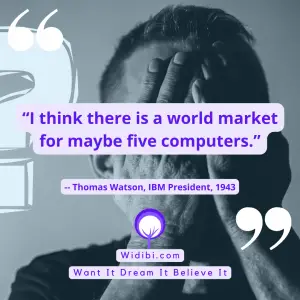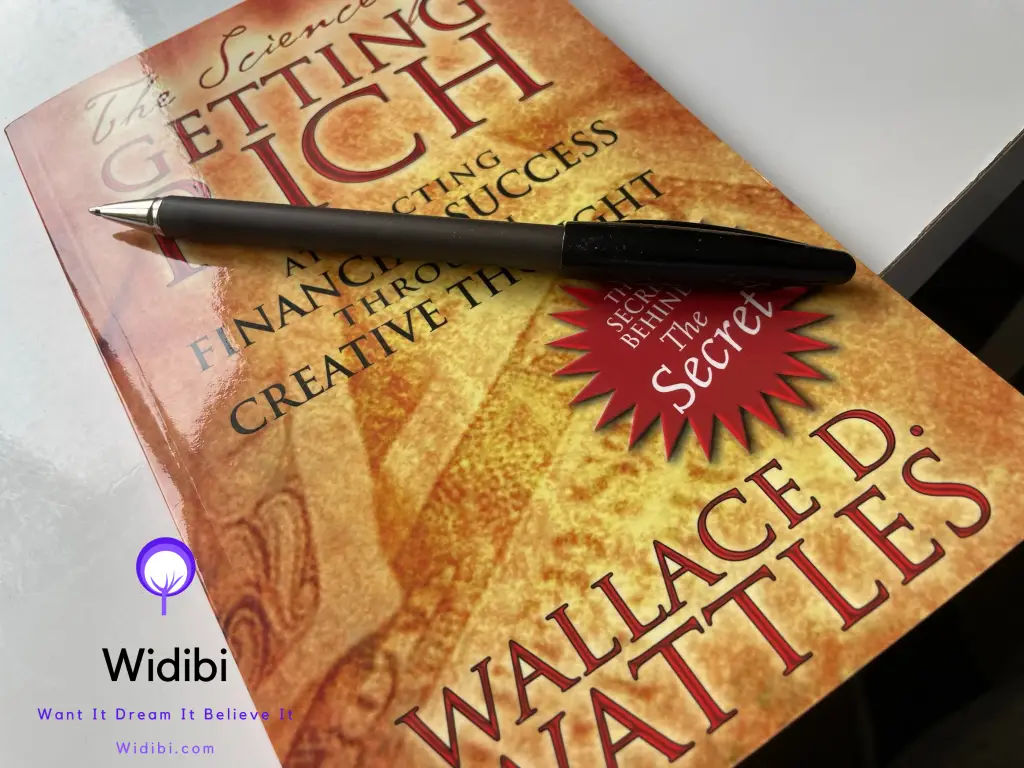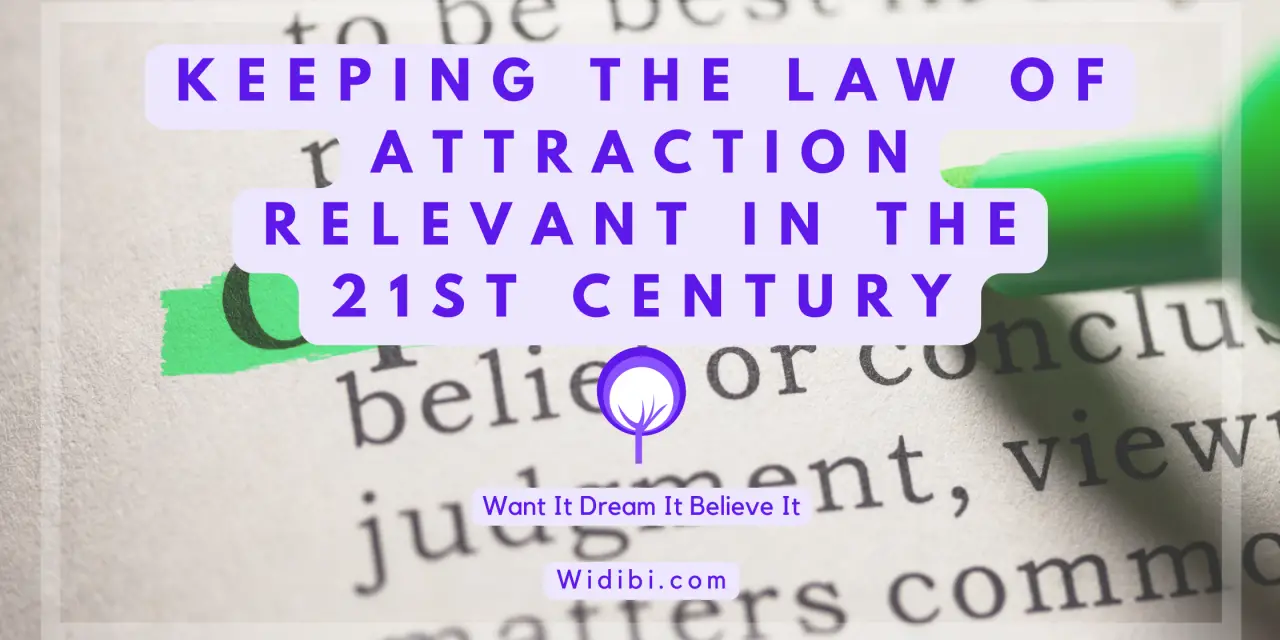Depending on who you ask, the law of attraction has been around for thousands of years. It might not have always had the same name, but there’s evidence of people using it to change their surroundings going back about as far as records do.
For the more optimistic people out there, there are numerous events throughout history that you could speculate involved the law of attraction, manifesting and other techniques. The article here at Widibi addressing who discovered the law of attraction touches on the subject’s history and notes the first usage of the term by Helena Blavatsky. She coined the term in 1877, so it’s been around a while, even under its current name.
The Ups and Downs of the Law of Attraction
The law of attraction has never been an entirely popular topic. Some people boldly proclaim that the practice has changed their life for the better and go out of their way to talk about it. However, just as many people, if not more, consider the law of attraction and associated techniques as absolute rubbish. I’m entirely happy with different people having their own opinions on the matter.
When the number of non-believers outweighs the believers, the law of attraction falls out of fashion. When something falls out of style, especially in the modern, connected world, it gets talked about less. As a result, it gets forgotten. People don’t know what they don’t know.
In 1943, IBM President Thomas Watson famously predicted that he thought there would be “a world market for maybe five computers.” With the benefit of hindsight, we know just how wrong he was. But he didn’t know what he didn’t know. He based his prediction on the information available at the time. The forecast was made before there were even 30 million phones connected in the US. Today, there are an estimated 294.15 million smartphone users in the country.

Mr Watson probably had access to a phone in 1943. However, he likely had no idea of using the same technology to kickstart a global, interconnected computer network. And that’s just one factor driving worldwide demand for more than five computers.
This illustrates a knowledge gap. The prediction was made based on what computers could do then. He was the president of IBM, so he had credibility. His prediction may have directly slowed the adoption of computers. After all, it was around 50 years before people expected a computer in every home.
People weren’t focused on bringing computers to the mainstream because an authority had already stated that it wasn’t going to happen. As a result, many people stopped pushing for it. It wasn’t being talked about.
The Law of Attraction Has Been Forgotten Before
You’ve probably heard of The Secret. It’s the de facto book on the law of attraction for this generation. It brought the concept back into the mainstream, selling over 20 million copies in the process, spawning an entire non-fiction novel series and landing itself on Wikipedia’s list of best-selling books.
Prior to that, the concepts of the law of attraction were discussed in the likes of The Science of Getting Rich by Wallace D. Wattles. He wrote that book in the early 1900s, while The Secret came out in 2006. The Science of Getting Rich print runs since The Secret‘s success, including my copy, have “The Secret Behind The Secret” on the cover.

Both books cover similar topics, but there was a gap of around 100 years between each publication. For much of that time, the law of attraction was rarely relevant and hardly mainstream. In the pre-online age, there was no chatter. There weren’t dedicated communities and websites around the subject. It wasn’t being talked about, resulting in most people having no idea of what the law of attraction was all about. It wasn’t relevant.
There are many potential reasons for the success of The Secret. It’s a good book, in my humble opinion. Rhonda Byrne may well have manifested its success. It was spurred on by the movie that came before and discovered that all-important mainstream attention when it attracted the attention of the likes of Ellen DeGeneres and Oprah Winfrey, a noted believer.
The law of attraction changes lives, whether it’s real or not. I can’t prove that the law exists, but there are plenty of success stories. I consider myself one of them. So many people fall for the hype, but they’re also drawn to what works.
Most importantly of all, the law of attraction returned to the mainstream. People were talking about it. They had a written resource available in The Secret to guide them on doing it correctly. A new generation knew about the law of attraction, and while the concept has been variously embraced, challenged, championed and parodied, it’s known. It’s controversial, but the law of attraction is relevant.
The Law of Attraction and Technology
Long in the future, this period of history will likely be referred to as the technology or connectivity age. We’ve seen the bronze age, the industrial age and more, where specific advancements characterized entire centuries. We’re living in the period where technology revolutionized the world more so than any other.
That’s both good and bad in terms of keeping the law of attraction relevant. Unless the entire internet disappears, humanity, for the rest of time, will have easy access to information on the law of attraction, from concepts and ideas to genuine experiences and guides. The Widibi team try to collate all that information, and it’s far from being the only site to do so. Sure, it relies on people going out of their way to find information on the subject, but its there for those that want it.
There probably won’t ever be a need for a smash hit bestseller like The Secret. Readers won’t require an updated tome on the law of attraction to bring concepts from a hundred years previous into the modern day.
That prediction could age like Mr Watson’s. However, there’s new content about the law of attraction written and published every single day, usually free to readers. So the law of attraction won’t need a refreshed perspective every century because it gets one every few hours.
However, technology can also hold the law of attraction back. That statistic above about there being over 294 million smartphone users in the US is relevant once again. That’s 294.15 million users in a country of 330 million people and counting. 89% of people in the US have a smartphone. It’s the perfect tool for the law of attraction, but opinion may hold it back.
It has a notes app for writing affirmations. It has WhatsApp and Messenger for sharing what you’re manifesting. It’s always with you, making it handy for keeping an eye on your vision board.
Manifesting on your phone is a tricky topic in the law of attraction world. Many people are set in their ways for a topic that’s impossible to prove scientifically and thrives primarily on personal experience. Read about affirmations, manifestation and even vision boards. You’ll find that many speakers on the subject say something along the lines of you can manifest on a phone or computer, but you probably shouldn’t.
They talk about the ‘feel of pen on paper’ or how phones distract from focused, positive thought.
I think that’s an outdated perspective. People who value the technique should have a stake in keeping the law of attraction relevant. The whole concept relies on abundance, literally demonstrating that there is more than enough to go around. There’s nothing to gain by gatekeeping the law of attraction.
The universe predates Earth, and if that’s what delivers through the laws of attraction, it probably doesn’t care how people handle their manifestations.
Suppose the internet had been around in the 1560s when graphite pencils were discovered. Would established law of attraction practitioners (or whatever they called it then) have warned people off anything but the tried and trusted quill and ink?
Would an Ancient Egyptian manifesting master have dismissed any affirmation not carved in a temple wall?

The law of attraction takes no account of technology or language. For example, an affirmation written in Spanish or Latin is no more or less powerful than one written in English. Likewise, a manifestation journal is just as potent when printed with a press as produced with an inkjet printer.
I can’t speak for everyone, but most people I know write less by hand. Beyond speaking, their main word output in a day comes in the form of Tweets and text messages. After that comes keyboards and word processors. Handwriting is a valuable skill, but it could prevent the law of attraction and associated techniques from remaining relevant if it’s held up as the best way to manifest.
Make the Law of Attraction Relevant to You!
I’m not saying that writing affirmations on a phone’s touchscreen is more potent than writing it by hand. Far from it. In fact, I believe they’re equally powerful.
I embrace technology and the law of attraction for the added benefits as touched on above. For example, if I keep a manifestation list on my phone, I can pull it out and speak my affirmations whether I’m in bed, on a train or visiting the bathroom.
If I want to manifest something new, I can note it down immediately without scrambling for a pen and paper. If I’m browsing Reddit and spot the perfect image for my vision board, I can drag and drop it in seconds.

And yet, I jot things down with a pencil in a manifestation journal each morning. Structure and consistency can help, just as in any form of goal setting. Whether I consciously think about it or not, the law of attraction touches various parts of my life, and I embrace it because I want it to remain relevant to me. Ideally, I’d like it to stay relevant to you, too, so experiment, keep an open mind, discover what works for you and stick at it. Read, absorb and learn, but never let someone tell you that you’re doing it wrong when you know for sure that it works.










